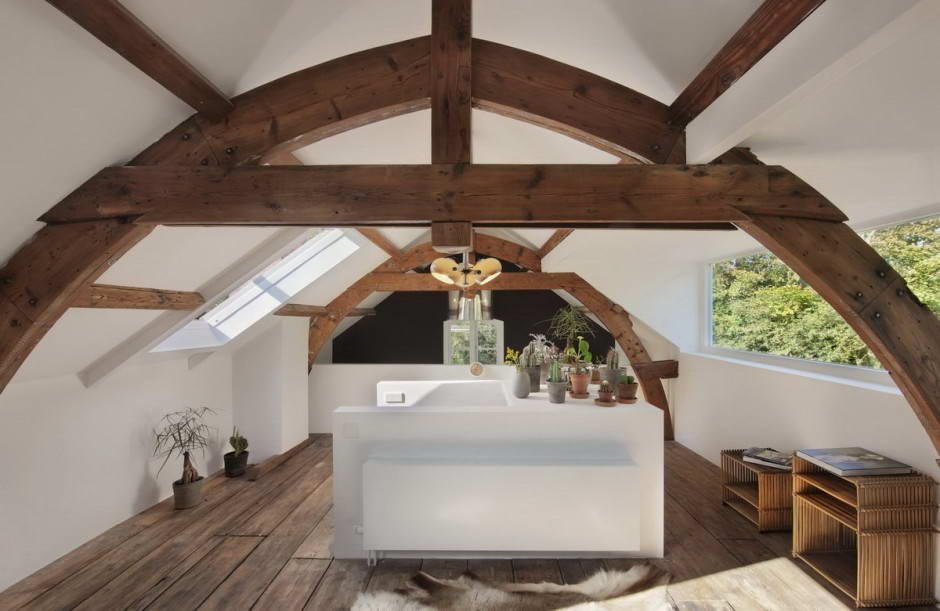#8030. Wooden Trusses and Minimalism: Harmony of History and Modernity in Attic Space

This is a magnificent example of modern minimalist interior organically integrated into a historical architectural structure. The attic space has been transformed into an elegant living area, where exposed wooden trusses and beams serve as the dominant element. These authentic structural elements form an expressive arched composition, creating a sense of airiness and protection simultaneously.
The white walls contrast with the dark wooden beams and aged wooden floorboards, giving the space depth and character. The central element is a minimalist white island, likely functioning as a kitchen or work area. Its laconic form doesn't compete with the architectural features of the space but rather emphasizes them.
Particularly impressive is the skillful use of natural lighting – large windows and, apparently, skylights in the roof provide evenly diffused light that highlights the texture of the wooden elements. Decorative accents in the form of plants in ceramic pots add life to the austere space, while the wooden modular storage system organically complements the overall interior concept.
This solution demonstrates mastery in working with historical space, where valuable architectural elements are preserved and highlighted, while contemporary minimalist design emphasizes their beauty. When designing the facade and interior of a country house, it's often worth paying attention to this approach – revealing and accentuating the structural features of the building instead of masking them.